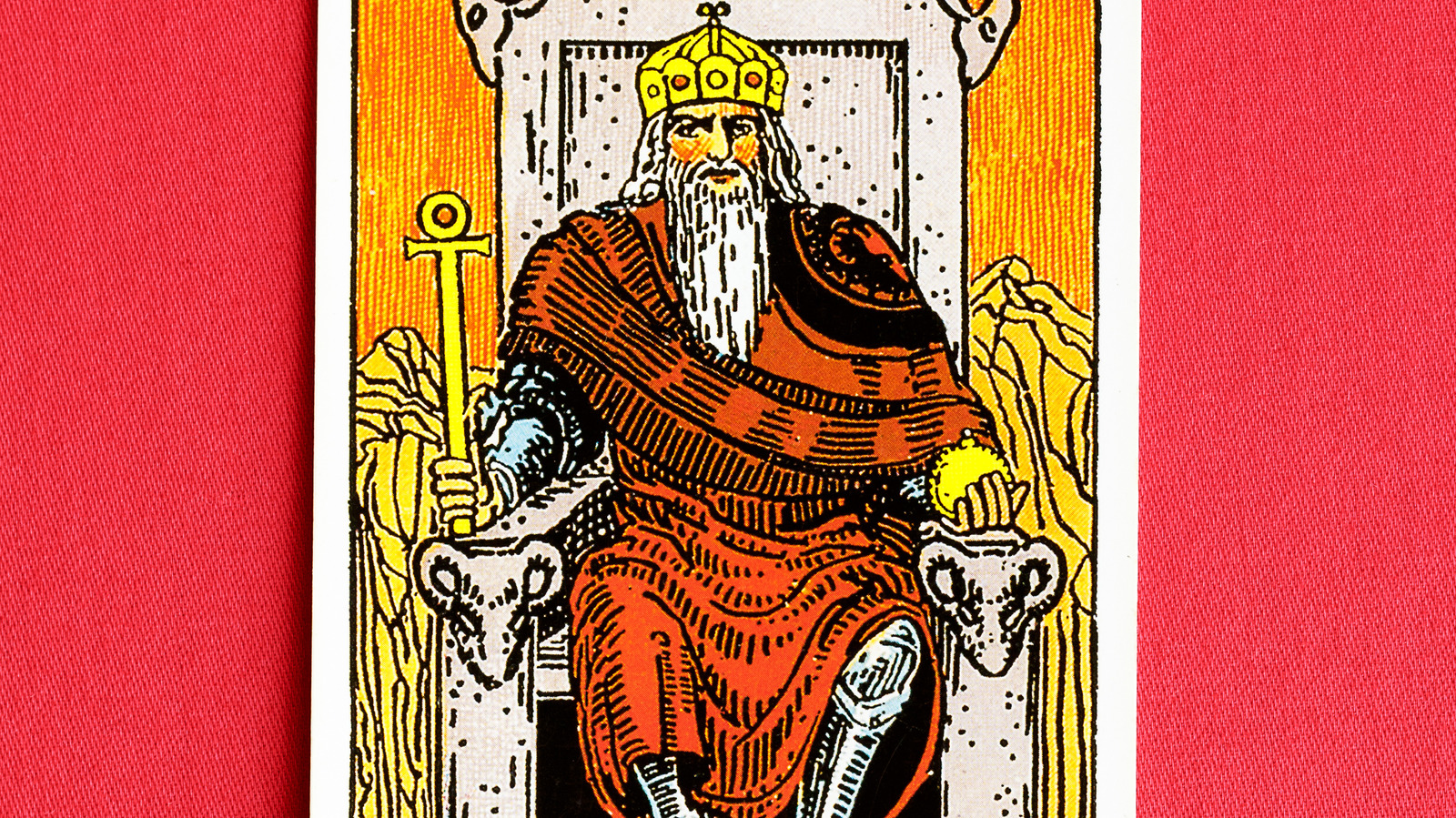The Emperor tarot card, distinguished by its imposing image and authoritative symbolism, occupies a pivotal role within the realm of tarot. Often associated with structure, stability, and leadership, the card is steeped in historical and psychological layers. Its presence in a reading can herald a myriad of meanings, entwined with the nuances of the querent’s question and the surrounding cards. Embarking on an exploration of The Emperor reveals a rich tapestry of insight that invites analysis and reflection.
Visually, The Emperor is adorned with regal attire, often depicted seated upon a throne, signifying sovereignty and dominion. The imagery is not merely ornamental; it embodies the foundational principles of authority and control. This card echoes the significance of establishing order and demonstrates that an anchored presence can offer guidance in tumultuous times. However, as with all symbols, the Emperor also beckons to one’s own power dynamics—how one may wield power, or alternatively, be influenced by it.
At its core, The Emperor embodies the archetype of the father figure. This evocation can manifest in both nurturing and formidable ways. Herein lies a curious dichotomy: while it promises stability and security, it can simultaneously imply rigidity and oppression if taken too far. The challenge, then, emerges not only in understanding this balance between benevolent guidance and authoritarianism but in examining one’s own relationship with authority. Do you find strength in structure, or do you resent the constraints placed upon you?
When The Emperor emerges in a tarot reading, it serves as a signal to embrace leadership, both in oneself and within one’s surroundings. This card signifies that it may be time to step into a role of responsibility, whether it be in personal endeavors, professional advancements, or community initiatives. The energy it radiates compels individuals to acknowledge their ability to influence circumstances positively. Curiously, this does not mean one must adopt an uncompromising stance; rather, it calls for decisive action that is fortified by wisdom and strategic planning.
In a more personal aspect, The Emperor card challenges individuals to analyze their personal boundaries and the structures they have created in their lives. Are these frameworks liberating, or do they inhibit growth? Reflecting on such questions can unveil deep insights into one’s motivations. The interplay between personal empowerment and the structures we inhabit is central to grasping the nuanced implications of this card.
Moreover, The Emperor encourages the cultivation of discipline. It posits that the path to success is often marked by rigorous self-control and adherence to a set of principles. To those contemplating changes or transitions, it suggests that careful planning and a solid foundation are essential. Embracing such tenets can unlock doors previously thought to be closed. Acknowledging the value of patience and perseverance invariably rewards those who align with The Emperor’s energy.
On a relational front, The Emperor can signify issues of authority within interpersonal dynamics. The card often surfaces when there are power struggles at play, where one party may dominate over the other. It confronts the querent with the question of balance—are you exerting too much control, or conversely, are you yielding too readily to another’s authority? This exploration of relational power dynamics can lead to transformative dialogues that foster mutual understanding and respect.
The Emperor also intersects with themes of tradition and heritage, linking the card to cultural legacies and familial legacies. It prompts individuals to delve into their roots, examining how familial structures influence their current realities. The lessons inherited from preceding generations can illuminate paths toward personal development, providing clarity on one’s role within a broader historical narrative. As you ponder your own legacy, consider how your actions today will echo through time.
As a card imbued with the essence of masculine energy, The Emperor invites reflection on gender dynamics within oneself and society. Constructed hierarchies can often be reinforced by traditional notions of masculinity, which can stifle individual expression. Acknowledging the complexities surrounding gender can empower individuals to transcend stereotypes and redefine notions of strength. Embracing a more nuanced understanding of masculinity allows for richer interactions and a broader spectrum of leadership characteristics to flourish.
Ultimately, engaging with The Emperor means forging a connection with one’s inner authority. The card promises that true power resides within each individual, waiting to be harnessed. It beckons everyone to look beyond external validations and embrace their own innate capabilities. How can you consolidate your power to precipitate meaningful change in your life or the lives of others?
The multifaceted nature of The Emperor tarot card acts as a fulcrum for introspection and growth. It challenges one to foster discipline while simultaneously considering the complexities of leadership, authority, and tradition. With an open mind and a willingness to explore these depths, individuals can glean invaluable insights capable of transforming their lives. Embrace the principles of The Emperor, and you may find the very keys to recalibrating your understanding of power and responsibility. What transformations await you on this journey toward self-discovery and empowerment?







Leave a Comment